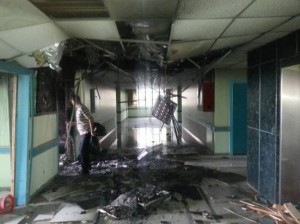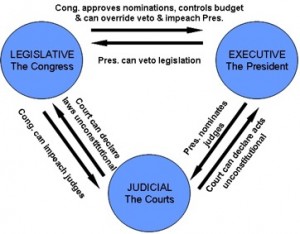Podcast: Play in new window | Download
Updates:
- Attorney Michael Smith Remembers 69th Anniversary of U.S. Dropping A-Bombs On Japan
- Atomic Diplomacy: Hiroshima and Potsdam: The Use of the Atomic Bomb and the American Confrontation with Soviet Power
—–
Ongoing reports of Israel engaging in senseless cruel violence against Palestinian people in Gaza throughout Operation Protective Edge is not a random bombing campaign but a strategic war experiment in colonial management as Greg Shupak explains in his recent article The Logic of Israeli Violence. Shupak points out the attacks on civilians fleeing for shelter, the bombing of the medical infrastructure, fishing boats and wheat mills, killing Arab speaking journalists are in the larger plan of ethnicide and to render the Palestinian people dependent. His article reminds readers that there is a measured plan of attack to systematically erase the historic memory of the Palestinian society.
- There’s good reason to believe according to some reporting by 97 Magazine and Max Blumenthal that the Israeli security forces knew quite perfectly well the teens were almost certainly killed as soon as they were abducted and yet they carried on this charade of pretending that they could be rescued in some way.
- Rocket fire from Hamas didn’t start until after Israel carried out strikes within Gaza, and carrying out various forms of killing Palestinian civilians and or people they described as militants.
- The rockets were a response to Israeli violence.
- Israeli propaganda has insinuated that these tunnels have in fact been used to kill Israeli civilians or that they may well be, but that simply has not happened.
- If the aim was to destroy tunnels, Egypt which is being ruled by a brutal regime, in its own right, was able to get rid of these tunnels without killing huge numbers of civilians.
- Israel’s aim vis a vis Gaza is to isolate Palestinians there from the outside world render them dependent on external benevolence and at the same time absolve Israel of responsibility toward them.
- The thesis I put forth about the current violence of Operation Protective Edge, is that one way Israel is attempting to achieve that goal, that goal of Jewish supremacy in historic Palestine with as much land as possible and as few Palestinians as possible is to aim to obliterate Palestinians as a people with the capacity to live independently in their homeland.
- The pattern of Israeli violence . . . is not only to kill and maim Palestinians but to impede their capacity to live autonomously in historic Palestine.
- It’s a settler colonial project.
- This is part of a longer term pattern. If you look at the work of Dr. Sarah Roy of Harvard she has documented extensively what she calls the deliberate de-development of the Gaza Strip economy. She has warned that Gazans are at risk for mass starvation.
- Five hospitals have been shut down. 24 health facilities have been damaged.
- We also that there’s been direct strikes on hospitals from Israeli fire.
- The ability of Palestinians to care for themselves has very much been undermined.
- Two thirds of Gaza’s wheat mills are inoperative, 3000 of its herders are in need of animal feed. We’ve seen fishermen attacked, we’ve seen attacks on agricultural sites, these are all part of those processes that Sarah Roy has talked about in the longer term.
- If religion is way for a cultural group to understand its identity then attacking the cultural institutions of that religion are ispo facto an attack on the people to have an identity.
- When you attack an educational institution you undermine the ability of a people to educate their young, to train them for future work, to train them to think critically, to develop artists, and inventors and so on.
- This to me is a very significant way for stifling a cultural groups independent existence.
- At its simplest, Israel can be seen as a giant military base for the United States.
Guest – Greg Shupak, a writer, activist and PhD candidate at the University of Guelph’s School of English and Theatre Studies. He teaches Media Studies at the University of Guelph, Ontario, Canada.
——–
The National Security State: The End of Separation of Powers
Retired Professor of Law from Duke University Michael Tigar joins hosts to talk about his recent article The National Security State: The End of Separation of Powers published in the latest Monthly Review Magazine. Michael has explained how the Executive branch of government has come to dominate both the Judicial and Legislative branches of the United States government. Attorney Michael Tigar has been working on social issues for many years, his books include Law and The Rise of Capitalism, Fighting Injustice, and Thinking About Terrorism: The Threat To Civil Liberties In Times of National Emergency.
- The basic principle of constitutional government that is established in our Constitution is that the actions of the legislative and executive branches, particularly the executive branch, are always reviewable by independently appointed judges and that the legality of whatever the executive branch does harms any protected interest, citizen or otherwise ought to be reviewable in the courts of the United States.
- The main thing about this is the harm to the judicial branch is in a real sense a self inflicted wound.
- That is to say judges confronted with assertions of executive power have proven inadequate to the task of restraining exercises of executive power
- We recall the massive illegality of the Japanese relocation at the beginning of the Second World War.
- It is now been shown that the premise upon which that relocation took place confining Japanese-Americans in concentration camps was false.
- At the time the Constitution was being debated Patrick Henry opposed the adoption of the Constitution on the ground that the ideal that independent judiciary could act as an effective check upon the exercise of executive power particularly military power was bound to be dis-proven in history.
- Law is legal ideology. That is to say its erected around social relations. In every time of recorded history there is a sense in which the formal guarantees that rules of law make about individual rights are simply lies the regime tells the people in order to sustain itself.
- That was the burden of book I wrote called Law and The Rise of Capitalism.
- The ideal that you rally people to the cause of social change by promising them liberty is also not new.
- The Cherokee people of Georgia read the Constitution and they said Aha, the Constitution guarantees that any group or individual can exercise certain social rights.
- So they drafted a Constitution for their nation and set up institutions then they brought suit against the state of Georgia to enforce these rights, that the letter of the American Constitution guaranteed that.
- What did Chief Justice Marshall say? What a minute, these are inferior and subject people. When the Constitution gives the right to all people, persons, citizens whatever, to bring lawsuits under Article 3 and to bring them to us, it wasn’t talking about these people.
- Michael Ratner you and others, courageous lawyers who have been struggling to get reviewablility of unlawful executive action should not give up the fight.
- The kinds of effort you make deserve support and turn out in historic context to be important.
- Historically the role of lawyers has been to articulate people’s claims for justice.
- What Edward Snowden and Julian Assange have done is reveal to the world fundamental defects in the way that the American political society has been operating and yet rather than saying thank you in some form of another, the government is hell-bent on prosecuting them.
Guest – Michael Tigar, a research professor of law. He holds expertise in Constitutional Law; Supreme Court; French legal system; criminal law and procedure; human rights. He is fluent in French. Tigar represented Terry Nichols in the Oklahoma City bombing trial. One of the most renowned lawyers in the country today, he has argued seven cases before the U.S. Supreme Court and more than 100 appellate cases. Tigar has written extensively about litigation, aspects of trial practice, criminal law, the death penalty, and the role of the criminal defense lawyer. His books include Fighting Injustice (ABA, 2002); Federal Appeals: Jurisdiction and Practice; and Examining Witnesses. In addition, he has written several plays about famous trials. Throughout his career, Tigar has been active in pro bono cases, the American Bar Association, continuing legal education programs, and international human rights. During the apartheid period, he went to South Africa to train black lawyers. Prior to joining AU, Tigar served as a professor at the University of Texas Law School.
—————————————————————————————–
Please help support Law and Disorder, the show is now a sponsored project of Fractured Atlas, a non-profit arts service organization. Contributions for the charitable purposes of Law and Disorder must be made payable to Fractured Atlas only and are tax-deductible to the extent permitted by law.



